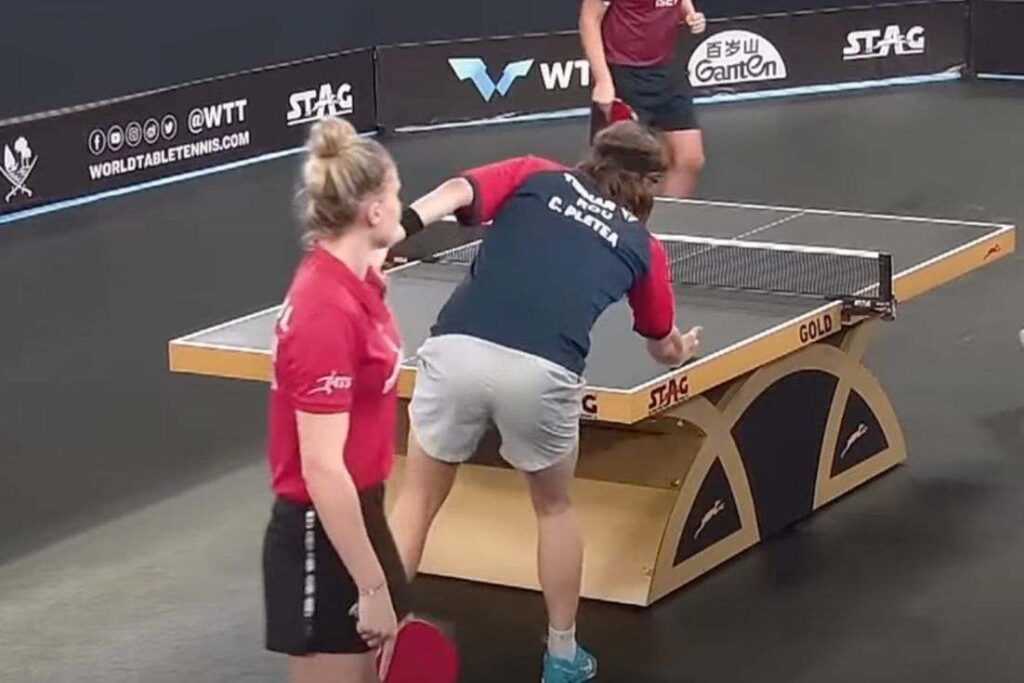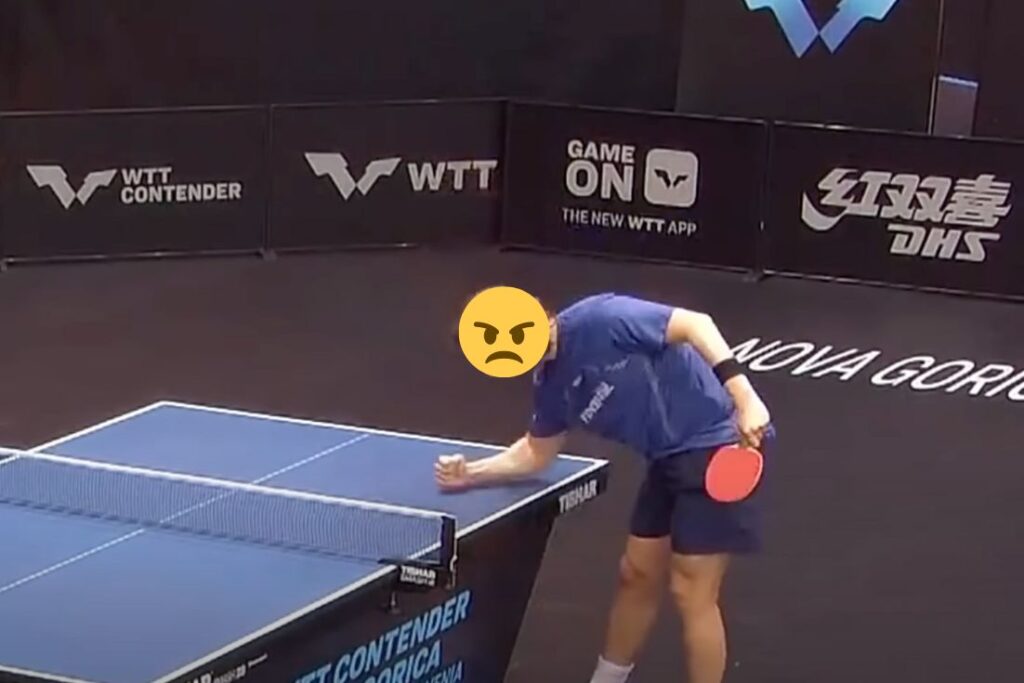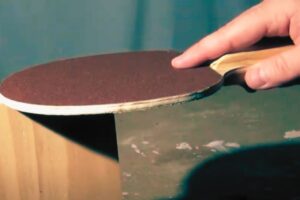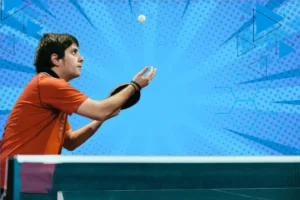Understanding when you can and cannot touch the table in table tennis is crucial for mastering the game. Many players, both beginners and advanced, struggle with this rule, leading to unnecessary fouls and lost points.
In this guide, we’ll break down the specifics of this rule to help you avoid common mistakes. By following these essential tips, you’ll enhance your performance and gain a competitive edge. Whether you’re playing casually or in tournaments, knowing how to properly manage contact with the table can significantly improve your gameplay. Dive in to learn how to stay within the rules and excel in table tennis!
Rules for Touching the Table
When it comes to the game of table tennis, every detail matters, including the rules for touching the table. The International Table Tennis Federation (ITTF) has set strict guidelines to maintain fairness and sportsmanship during matches. Players are generally not allowed to touch the table in table tennis during a match unless they have explicit permission from the referee. This rule ensures that the playing surface remains undisturbed, guaranteeing a level field for both competitors.
However, there are situations where players can touch the table legally. It’s acceptable when players need to adjust the net, but even then, they must do it with utmost care, ensuring no other part of the table is touched. Any unauthorized contact with the table can lead to penalties or the loss of points.
See More: Table Tennis Clothing Rules You Can’t Ignore!
Table Touching Situations
In the fast-paced world of table tennis, moments can arise when players inadvertently touch the table in table tennis, leading to various consequences and penalties. Let’s explore these “Table Touching Situations.”
1. Balancing Act: During intense rallies, players might lose balance and accidentally brush the table with their hands or body. In such cases, the point usually goes to their opponent as per ITTF regulations.
2. Net Adjustment: While adjusting the net, players can touch the table in table tennis. This action is permissible, but it should be done with utmost care to avoid any unintentional disturbances while touching the net.
3. Deliberate Contact: Any deliberate contact with the table, such as resting a hand on it, results in a loss of the point.
4. Unintentional Touch: If a player accidentally touches the table and the referee deems it as involuntary, a let may be called, and the point replayed.
In the rules of table tennis, players must uphold the integrity of the game by avoiding inadvertent table contact. Playing table tennis requires vigilance to prevent penalties that can alter the match’s outcome.

Preventing Table Touch Violations
Preventing table-touch violations is essential for maintaining the integrity of a table tennis match. Here are some tips and techniques for players to avoid unintentional infractions:
- Mastering footwork is crucial. Be mindful of your positioning relative to the table, ensuring you don’t inadvertently graze it during intense rallies.
- Develop heightened body awareness, especially during quick movements. Keep your body centered and your weight well-distributed to prevent accidental touches.
- Pay attention to how you handle your racket. Precision in your shots and controlled follow-through can significantly reduce the risk of touching the table.
- Regular practice helps improve control. Work on drills that focus on movement and positioning near the table without contact.
- Stay focused on the game. Avoid leaning too far over the table; instead, maintain a balanced and ready stance.
By incorporating these techniques and maintaining proper body positioning, players can minimize the chances of unintentional table touch violations, ensuring a fair and competitive table tennis match.
Referee and Umpire Roles
Referees and umpires are responsible for overseeing matches, including enforcing rules regarding players touching the playing surface. They are impartial judges, responsible for upholding the integrity of the game.
These officials closely monitor players’ actions near the table. If they observe any unauthorized touches, they stop the game, assess penalties, and award points to the opposing player as per the International Table Tennis Federation (ITTF) rules.
Their vigilant presence and enforcement of rules ensure that matches are conducted with the utmost fairness and that all players adhere to the regulations governing table-touch violations.
Common Misconceptions in Touch the Table in Table Tennis
In the world of table tennis, there are common misconceptions and myths about table-touching rules that need clarification:
- Many believe that even the slightest hit the table with the racket is a violation. In reality, as long as the table isn’t moved, incidental contact with the racket is acceptable.
- There’s a common misunderstanding that players can touch the table with their hands. This is not the case; any unauthorized hand contact is a violation.
- Players can touch the table in table tennis when adjusting the net, but it should be done cautiously to prevent any disturbances.
These clarifications help ensure that players have a better understanding of the rules governing table touching, promoting fair and sportsmanlike play in table tennis.
Consequences of Violating Table Touch Rules
Table tennis, governed by the International Table Tennis Federation (ITTF), has strict rules to ensure fair play and maintain the integrity of the game. Violating table-touch rules can lead to serious consequences.
Point Loss: The ITTF rules state that if a player touches the table with their free hand during a rally, they lose the point. This rule emphasizes the importance of maintaining proper decorum during a match.
Warnings and Penalties: Repeated violations may lead to warnings or even penalties, such as a point deduction or disqualification. Players must be cautious to avoid such actions.
Opponent’s Advantage: Violating touch the table in table tennis rules can disrupt the flow of the game and provide an advantage to the opponent, affecting the fairness of the match.
In Closing
In conclusion, understanding the intricacies of table tennis rules, particularly when it comes to “touching the table,” is essential for every player. The regulations set by the International Table Tennis Federation (ITTF) emphasize fair play and sportsmanship.
Remember, touching the table during a match can result in point loss, potentially affecting the outcome of the game. It’s crucial to respect and adhere to these rules to ensure a level playing field and uphold the integrity of this thrilling sport. By staying informed and following these guidelines, players can enjoy the game to its fullest, showcasing their skills while respecting the fundamental principles of table tennis.










